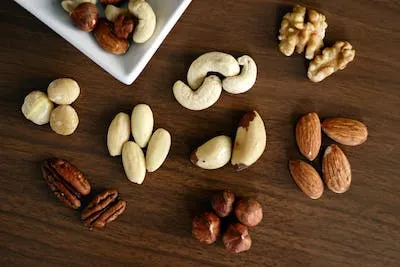
"You are what you eat" is more than just a cliche. It's also sound advice for young athletes. After all, food fuels success in sports. But what should players eat? How much? When? Follow these five youth sports nutrition tips for coaches (and parents) and help boost performance of your young athletes.
Tip #1: Know the Right Balance
Eating healthy meals is important for every kid--and vital for young athletes.
What's a good nutritional strategy to follow? A balanced meal for young athletes includes 50 to 60 percent carbohydrates, such as brown rice or whole-grain bread. Twenty-five to 30 percent of meals should be non-starchy vegetables, such as broccoli, cabbage, carrots, or lettuce. The final 15 to 20 percent should be lean proteins, like chicken, eggs, tofu, or turkey.

A consistent salad regimen can fuel your next championship season.
Tip #2: Eat Three Meals a Day
Every season gets hectic. Families are often cramming practices, games, and homework--for multiple kids--into busy weeknight evenings. And mornings are equally harried. It's all too easy for young athletes to skip meals.
But sports nutrition experts say meal skipping is a bad idea for young athletes. When young people skip breakfast or lunch, they may be missing out on essential calories, carbohydrates, or protein needed to fuel their sports performance. And it's easy to skip an early meal and overload or make less-healthy food choices later in the day.
Active kids need an energizing breakfast to start their days. A balanced lunch of protein, fruits, veggies, and grains is ideal--and provide enough energy for after-school athletics. A nutrient-dense dinner is also a must.
Curious what young athletes can learn from the pros? Building nutrition habits is a critical key to success.
Tip #3: Choose Healthy Snacks
Let's face it: There are way too many unhealthy snacks available today. Junk food and sweets are everywhere. And poor-quality snacks have little value for young athletes.
What are some good options? Snacks that provide carbohydrates and protein are excellent ideas. For carbs, try fruit or Greek yogurt. And protein? Nuts or nut butters are easy, delicious options. Also, consider lightly salted snacks--such as pretzels or popcorn--to help replace sodium lost through sweat.
Tell your young players to skip the candy, soda, cookies, and chips. An occasional treat is OK, but advise them to create the habit of healthy snacking.

Mixed nuts can be an athlete and parent's best friend.
Tip #4: Fuel Up for Games or Competitions
Building good eating habits is critical for young athletes who need to keep up their energy every day. But what about game day? Should they do anything different or special to prepare?
Here's a pro tip: Encourage athletes to eat meals three to four hours before athletic activity whenever possible. This amount of time gives athletes' bodies enough time to digest their meals and absorb nutrients. Also, know that the best pre-game meals include ample carbohydrates and moderate protein, but little fat. Why? Fat takes longer to digest and can cause upset stomaches during play. Also, high-fiber foods can cause stomach irritation for some people. So those are best avoided until after competition time.
Yes, the ideal time window can be hard to achieve--especially during a tournament when playing several games in a day. In those situations, advise athletes refuel during the day with healthy snacks.
Tip #5: Support Post-Exercise Recovery
After intense exercise, the muscles our bodies are tired and need to recover. A mix of protein and carbohydrates are ideal for the recovery period.
Protein helps muscles repair themselves and also supports muscle gain. And carbohydrates reload glycogen--an energy source in our muscles--and help prepare them for more exercise in the future.
To promote recovery, young athletes should have a snack containing proteins and carbohydrates within 45 minutes after exercise.
What are some good choices? For carbs, consider fruits, rice cakes, or oatmeal. Protein options include cottage cheese, Greek yogurt, or protein bars.
Some dieticians suggest that young athletes drink chocolate milk as a recovery snack. Chocolate milk contains carbs and protein--and it's a sweet treat that many kids love. Of course, young athletes shouldn't over-indulge on chocolate milk. An eight to 10-ounce serving is a perfect choice for post-workout recovery.
Athletes can also have a post-exercise meal that is rich in protein and carbohydrates. Good combinations include chicken and roasted vegetables, tuna sandwich on whole-grain bread, or baked salmon and sweet potatoes.
Putting Youth Sports Nutrition Tips for Coaches into Action
Coaches are valuable sources of wisdom for young athletes in many ways. Yes, your primary role is teaching them essential sports techniques and the rules of the game. But you can give your young players nutritional advice and help them form healthy eating habits that can last a lifetime.
Teach your young athletes how to create balanced plates that include carbohydrates, protein, and non-starchy vegetables. Explain the difference between healthy and unhealthy snacks. And don't just tell them--walk the talk! Bring good-quality snacks that help promote recovery from athletic activity to practice. If you share meals with athletes, choose healthy options and take time to discuss nutrition.
And don't neglect the importance of proper hydration. Encourage athletes to drink water throughout the day and have plenty on hand for practices and games. Tell young athletes to limit the consumption of sports drinks and avoid energy drinks completely.
Always advise athletes to seek out professional guidance if needed. Nutritional needs can change as athletes grow and develop. Serious competitors and some female athletes may have unique dietary needs. Consulting a nutritional expert is the right call in those scenarios.
You don't need to be a sports nutrition guru to set an example for your team. Knowing and practicing good nutrition habits is a smart idea for any youth sports coach. Your athletes look up to you, so every positive choice you make can make a difference.